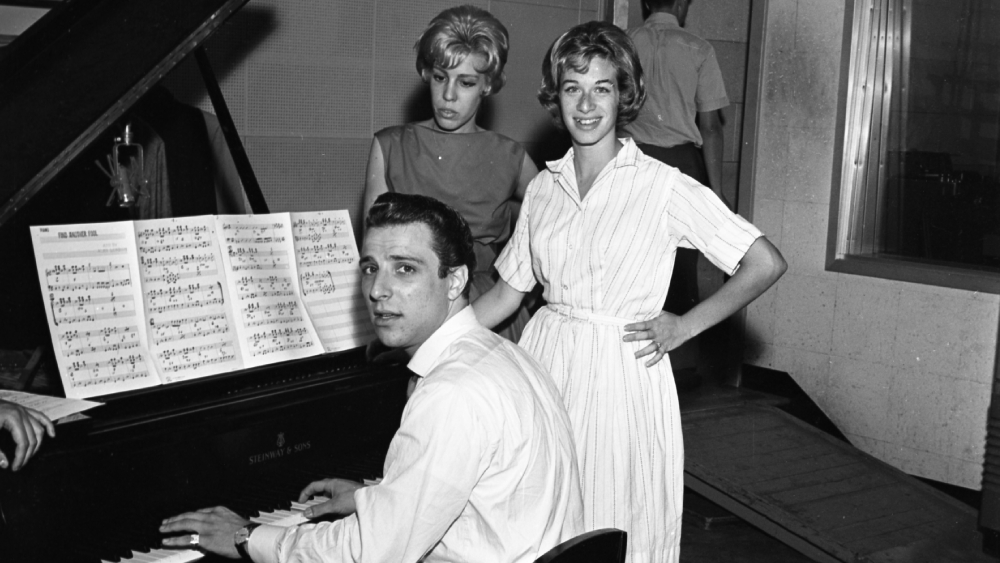Carole King Recalls ‘Fierce’ Songwriting Competition With Cynthia Weil
Grammy-winning Songwriters Hall of Fame member Cynthia Weil — who co-wrote “You’ve Lost That Lovin’ Feeling,” “On Broadway,” “Make Your Own Kind of Music,” “Walking in the Rain,” “You’re My Soul and Inspiration,” “Uptown,” “He’s So Shy,” “Kicks,” “Here You Come Again,” “Through the Fire,” “Somewhere Out There” and many other hits, mostly with her husband and Brill Building colleague Barry Mann — died earlier this month at the age of 82.
She was one of the top “Brill Building” songwriters that came out of the Midtown Manhattan building of the same name (although much of the work actually was done a couple of blocks uptown at 1650 Broadway) and spawned literally hundreds of hits throughout the 1960s for the Righteous Brothers, the Ronettes, the Drifters, the Monkees, the Animals, multiple Phil Spector productions and many others. Along with Mann — to whom Weil was married for some 62 years — the coterie included another young married couple, Carole King and the late Gerry Goffin.
Following in full are the remarks King (pictured above, right, in 1959 with Mann and Weil) gave at the celebration of Weil’s life, held on June 11 in Los Angeles, in which she remembers their decades-long friendship, their early years and the friendly yet fierce sense of competition they felt in those days.
Gerry Goffin and I had already signed with Aldon Music when we first met Barry and Cynthia In New York in the early 60s. They were giddy in love, and we quickly realized that Cynthia’s gift with words was the perfect match for Barry’s soaring melodies.
The four of us became close friends — we went to dinner, movies, theater, or we just hung out. We’d laugh about the silliest things, and we’d call each other by our first syllable. I was Ca, my husband was Ger, and they were Cyn and Ba.
Concurrently, we were fierce competitors to be the team that got the follow-up for an artist with a No. 1 hit.
Here’s how it worked. Donnie Kirshner had these cubicles, each with a piano and a bench, a chair for the lyricist, a few pens, a legal pad, and an ashtray. So, when Mann and Weil and Goffin and King were writing in adjacent cubicles, when I stopped playing, Gerry and I could hear what they were writing. And we’d look at each other and say, “Oh my God, we have to do better.”
Later, we learned that Barry and Cynthia did the same. And here’s how the competition went.
Gerry and I had our first hit with “Will You Love Me Tomorrow.” [the Shirelles, Billboard Hot 100 No. 1, 1961 — this and the following songs have been covered thousands of times, and many charted multiple times as well]
Barry and Cynthia wrote “Uptown.” [the Crystals, No. 13, 1962]
We said, “Okay. ‘Up on the Roof.’” [the Drifters, No. 5, 1962]
They said, “Oh, yeah? ‘On Broadway.’” [the Drifters, No. 9, 1963]
We came back with “Oh No, Not My Baby.” [Maxine Brown, No. 24, 1964]
And they said, “You’ve Lost That Lovin’ Feeling.” [the Righteous Brothers, No. 1, 1964 — and later ranked as the most-played song on American radio and TV in the 20th century]
Game over!
As you know, all four of us went on to write many more hit songs. In fact, one of the phrases each of us often heard was, “I didn’t know you wrote that!”
Can I tell you a little secret? I had one of those moments last week, when I read an article listing ten songs with lyrics by Cynthia Weil. One of them was “Through the Fire,” which she wrote with David Foster and Tom Keane. In addition to being blown away by Chaka Khan’s performance, every time I heard the song I’d think, “What a great lyric!” Of course it was.
So, I’ve been talking about Cynthia as a fellow songwriter, but we all knew her as a friend, including her family.
My friend Cynthia loved me so much that she came to visit me in a log cabin in the Idaho backcountry with no running water, no electricity, and no dust ruffle on the bed.
She was chic, strong, and brilliant — and she fought to be recognized not just as a lyricist but as the equal of any man in the music business. And she fought to stay with us right down to the wire.
Rest well, dear warrior.

